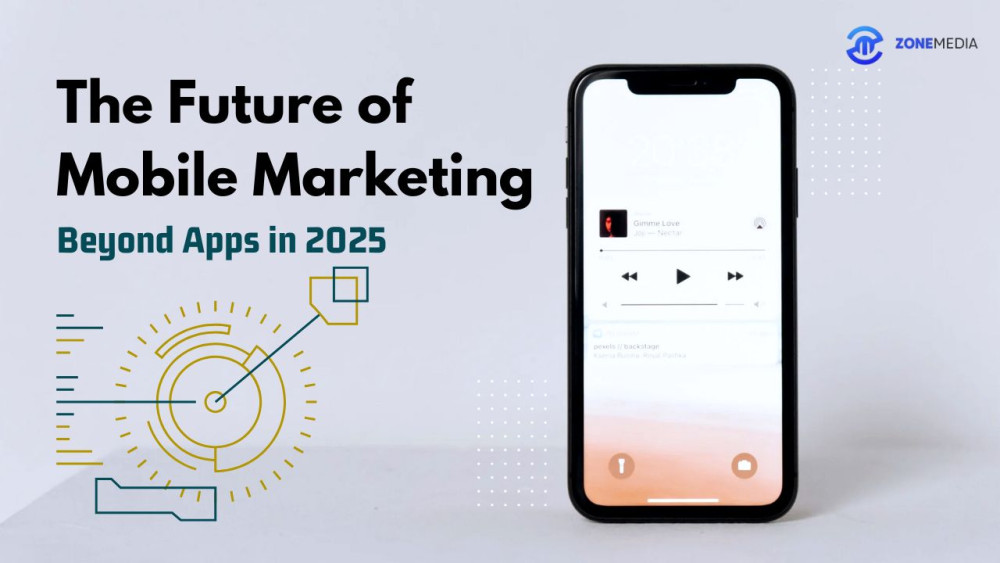Mobile devices have become the central hub for digital interactions, revolutionizing how brands connect with consumers. As we venture deeper into 2025, mobile marketing is evolving far beyond app promotions. The future lies in delivering integrated, seamless experiences fueled by emerging technologies and user-centric strategies. Let’s explore the transformative trends shaping mobile marketing and how brands can stay ahead.
The Evolving Mobile Landscape
The mobile landscape is dynamic, driven by ever-changing user behavior and technological advancements. Staying competitive requires brands to adapt quickly and embrace new opportunities.
Progressive Web Apps (PWAs): These hybrid applications combine the best of native apps and web browsers. PWAs load quickly, work offline, and can be added to home screens without requiring a download. They offer a cost-effective and user-friendly alternative to traditional mobile apps.
Mobile-First Indexing: Google’s shift to mobile-first indexing prioritizes the mobile version of a website for search rankings. Brands must ensure their websites deliver a fast, responsive, and intuitive mobile experience to remain competitive.
5G and Advanced Network Technologies: The widespread rollout of 5G is enabling faster, low-latency connections, paving the way for immersive mobile experiences, such as augmented reality (AR) and virtual reality (VR).
Mobile Commerce Boom: With a growing number of consumers shopping via smartphones, seamless and secure mobile commerce experiences are non-negotiable. Brands that prioritize ease of navigation and frictionless payments will thrive.
Key Trends Shaping the Future of Mobile Marketing
1. The Rise of Progressive Web Apps
PWAs are increasingly popular for their fast load times and ability to function offline. By offering an engaging user experience without the need for app downloads, they are becoming a go-to solution for brands looking to enhance mobile engagement.
2. Mobile-First Indexing and SEO
Optimizing for mobile-first indexing goes beyond having a responsive design. Websites must also prioritize fast load speeds, intuitive navigation, and mobile-friendly content to rank well in search results.
3. AR and VR Integration
AR and VR technologies are becoming more accessible on mobile devices. Brands can create immersive experiences that captivate audiences, from virtual try-ons to gamified marketing campaigns.
4. Mobile Commerce Optimization
A seamless shopping experience is essential as mobile commerce continues to surge. This includes optimizing product pages, ensuring secure payment options, and leveraging AI for personalized product recommendations.
5. Location-Based Marketing
Mobile devices provide valuable location data that can power highly targeted marketing campaigns. Brands can deliver hyper-relevant offers and promotions based on a consumer’s geographic location.
6. Voice Search Optimization
Voice search is becoming an integral part of mobile interactions. Brands need to optimize their content for voice queries by adopting natural language patterns and focusing on local SEO.
7. Personalized Mobile Experiences
Consumers expect tailored experiences on their mobile devices. Leveraging AI and data analytics allows brands to deliver customized content, offers, and recommendations.
8. Mobile Advertising Innovations
With advanced targeting capabilities, mobile advertising continues to be a powerful tool. Brands can create interactive and engaging ads that resonate with specific audiences.
9. Mobile Analytics for Smarter Decisions
Tracking and analyzing mobile data is essential for understanding user behavior and refining marketing strategies. Brands that invest in robust mobile analytics tools gain valuable insights for optimization.
Strategies for Mobile Marketing Success
To thrive in the evolving mobile landscape, brands must adopt forward-thinking strategies:
Prioritize PWAs: Develop Progressive Web Apps to deliver fast, engaging, and offline-capable user experiences.
Optimize for Mobile-First Indexing: Ensure your website is responsive, loads quickly, and provides an exceptional mobile experience.
Explore AR and VR Experiences: Integrate immersive technologies to captivate and engage consumers.
Enhance Mobile Commerce: Focus on creating a seamless and secure shopping experience.
Leverage Location-Based Marketing: Use geographic data to deliver personalized offers.
Optimize for Voice Search: Adopt conversational content strategies and emphasize local SEO.
Deliver Personalized Experiences: Harness data and AI to provide tailored content and recommendations.
Innovate with Mobile Advertising: Use interactive ad formats to connect meaningfully with your audience.
Invest in Mobile Analytics: Analyze user behavior and campaign performance to drive continuous improvement.
Embracing the Future
The future of mobile marketing is filled with opportunities to connect with consumers in meaningful ways. By embracing emerging technologies, focusing on personalization, and staying agile, brands can create captivating mobile experiences that foster long-term engagement. In 2025 and beyond, mobile will remain the cornerstone of digital marketing strategies, and those who prioritize mobile-first approaches will lead the way.


